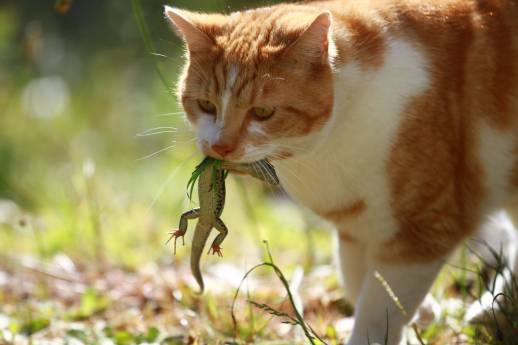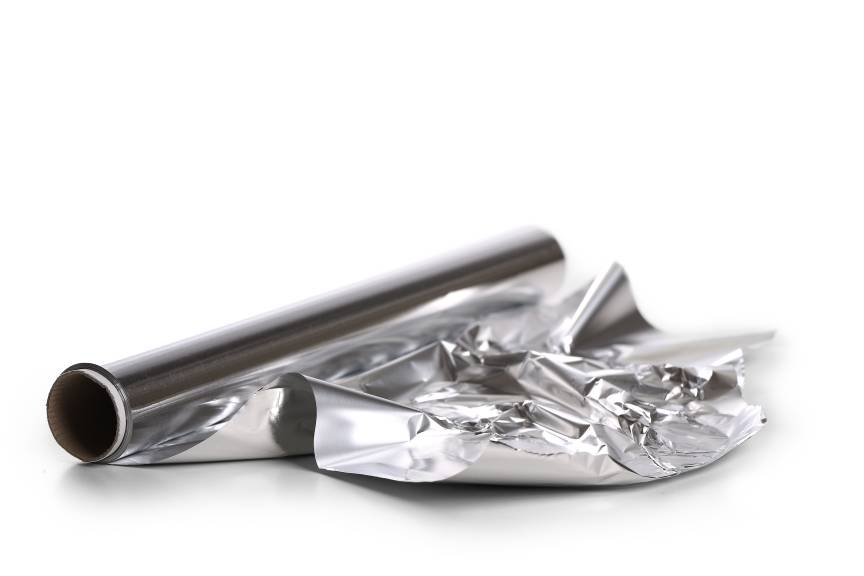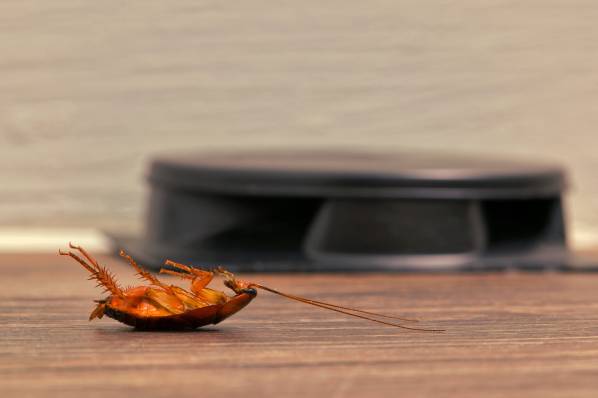Connect with a verified veterinarian in minutes. Licensed vets are available 24/7 to answer your questions. No need to worry about your furry family member.
Cats love to chase mice, bugs, and lizards around the house or yard. For some kitties, it’s just a fun game (not so fun for the critters they’re chasing!). However, a cat may sometimes get lucky and catch the lizard. But what happens if the cat also eats the lizard?
Has your cat eaten a lizard? Are you worried the lizard will make your cat sick? If so, you’ve come to the right place. We understand it can be scary when your cat eats something like this.
We’ve gathered information about lizards and whether they can make a cat sick. Let’s get started!
What are Lizards?
Lizards are a broad group of reptiles that live all around the world. There are thousands of lizard species in the world, each with its own traits and characteristics. These fascinating creatures come in many colors, shapes, and sizes. One of the largest lizards in the world is the Komodo dragon, native to Indonesia. They can weigh 154lbs and reach lengths of 10.3 ft. Hopefully, you don’t have one of these beauties in your backyard!
Thankfully, the lizards where you live are probably much smaller than the Komodo dragon! Even so, cats love to chase almost anything. Remember, our feline friends are predators. Their wild ancestors ate all kinds of things, including lizards. So, it only makes sense that a cat might eat a lizard once in a while. But what happens if a cat eats a lizard?
Lizards & Cats
Some lizards can be dangerous to cats. In North America, some small lizards secrete poison through their skin. These include newts, salamanders, and juvenile blue-tailed skinks. There are also lizards that can carry parasites that could infect a cat.
So, it is possible for a cat to get sick from eating a lizard.

Review symptoms, medications & behavior to keep your pets healthy with a Vet Online in just minutes.
Ask a Vet Live NowSymptoms of Toxicity or Infection After Eating a Lizard
You may notice these symptoms if your cat has eaten a lizard:
- Excessive drooling or foaming at the mouth
- Excessive thirst
- Weakness or lethargy
- Loss of appetite
- Vomiting
- Diarrhea
- Pale or yellow gums
- Nervousness
- Hyperactivity
- Muscle tremors
- Seizures
- Crossed eyes
- Erratic movements when walking
- Coma
If your cat shows any of these symptoms, call the vet immediately. This is an emergency.
Prevention is the Best Medicine
It’s best to keep cats indoors to keep them safe from outdoor risks, such as lizards. The problem is that lizards can enter your home, where your feline companion may still chase and eat them.
For these reasons, it’s highly recommended to be away of your cat’s behavior. If she acts differently or shows any concerning symptoms, it’s possible she’s eaten a lizard or something else that’s made her sick. When this happens, it’s best to call the vet right away.
The sooner your cat receives treatment, the better. Prompt medical treatment could save her life!
Connect with a verified veterinarian in minutes. Licensed vets are available 24/7 to answer your questions. No need to worry about your furry family member.

Kyoko
Kyoko is from a family of 3 and moved to New York with her parents and siblings when she was 13. Kyoko is fond of spending a great amount of time with pets, specifically her beagle Luna and cat Missy. Her boyfriend often complains that she spends too much time giving attention to their animals. Kyoko has written dozens of articles concerning pets and is aiming at owning a pet shop one day!
Review symptoms, medications & behavior to keep your pets healthy with a Vet Online in just minutes.
Ask a Vet Live Now




